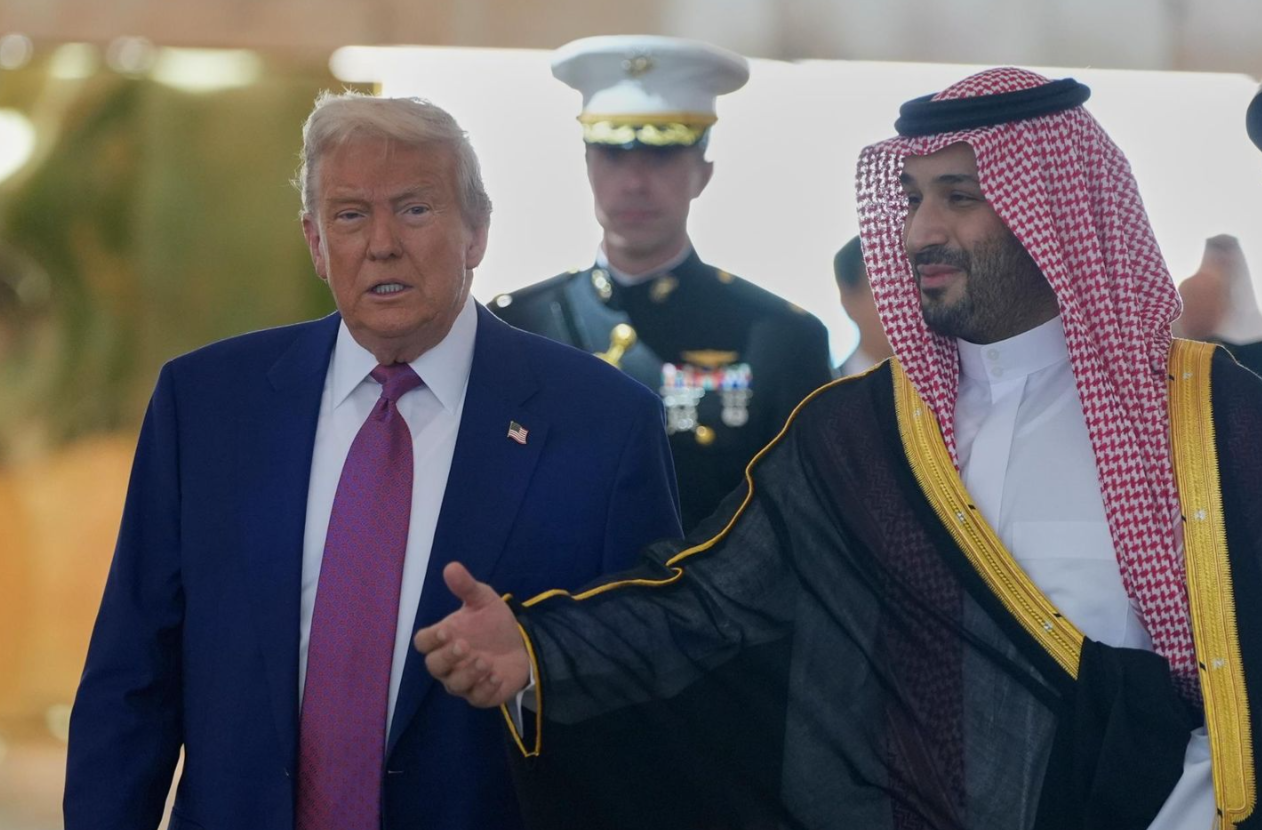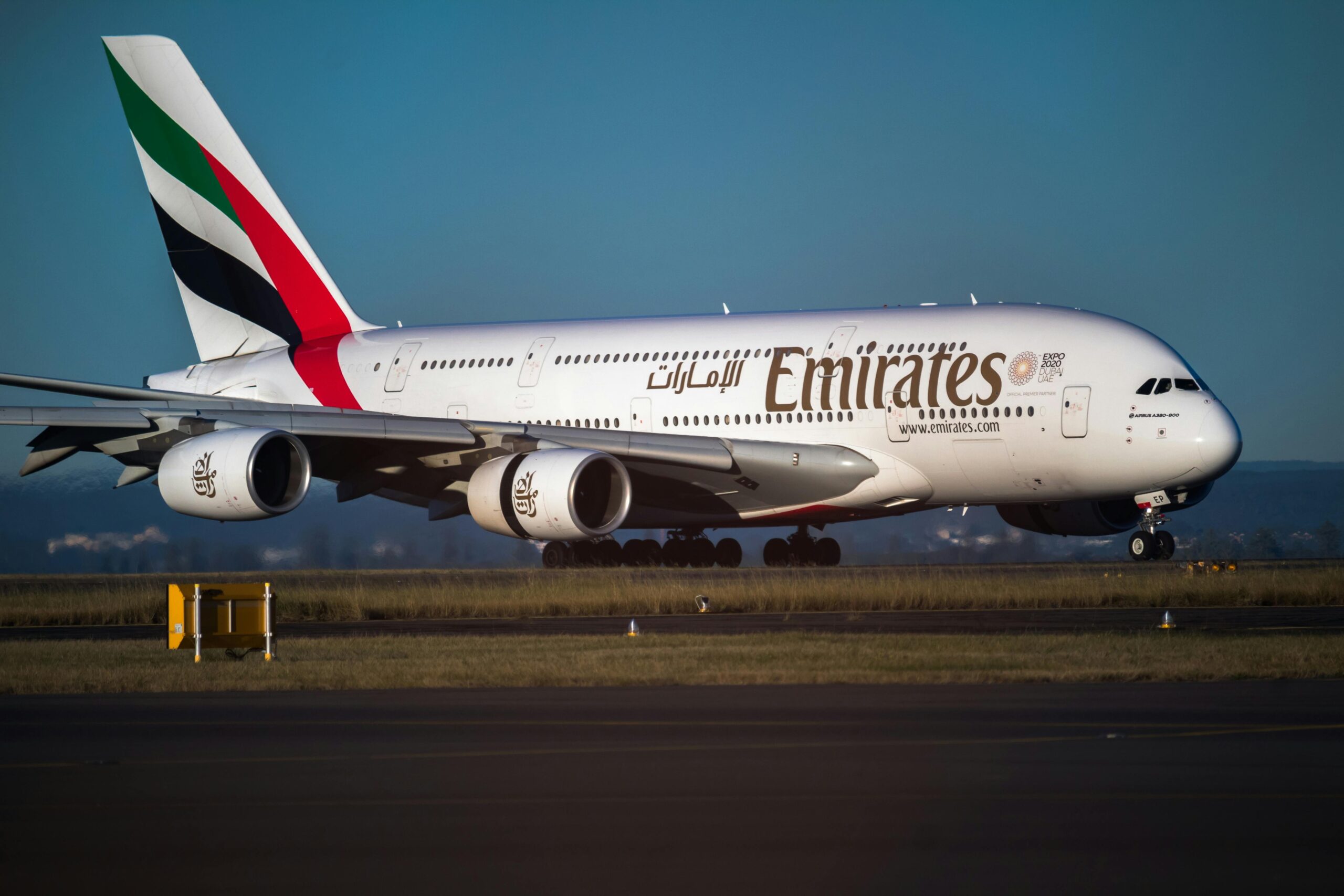Israel ‘normalisation’ takes backseat as Trump announces Saudi deals
During his visit to Riyadh, the U.S. president prioritized business deals, moving away from Biden’s focus on formal Saudi-Israeli ties.

Washington, DC. (WE) — During a visit to Riyadh, United States President Donald Trump made it clear that formal ties between Saudi Arabia and Israel are no longer a priority. Instead, the focus has shifted to business and defense partnerships. Speaking in the Saudi capital, Trump called normalisation a “dream,” but stressed that Saudi Arabia should move on it in its “own time.”
The White House released a set of major economic and defense agreements with the kingdom on Tuesday. The deals span hundreds of billions of dollars. Notably, there was no mention of Israel in any of the announcements. That marks a sharp departure from former President Joe Biden, whose regional policy centered on securing Saudi-Israeli normalisation.
According to Anna Jacobs, a non-resident fellow at the Arab Gulf States Institute, Trump’s administration is no longer linking Saudi cooperation to Israeli normalisation. “This shift likely shows frustration with Israel’s ongoing military operations in Gaza,” she said.
Kristian Coates Ulrichsen, a fellow at the Baker Institute for Public Policy, echoed this view. He noted that Israel’s refusal to discuss a Palestinian state, combined with the ongoing war in Gaza, has made any normalisation pact unrealistic. “The White House seems to have finally accepted that a deal just isn’t possible right now,” he told Al Jazeera.
During his first term, Trump had brokered the Abraham Accords, which saw Israel establish ties with countries like the United Arab Emirates and Bahrain. But those agreements excluded Palestinians, and they failed to resolve the root conflict. The outbreak of war in Gaza in October 2023 only confirmed the limitations of that strategy.
Even before the current war, Israel had ramped up military raids and expanded settlements in the occupied West Bank. These moves weakened the prospect of a two-state solution. Still, Biden made Israeli-Saudi normalisation a central goal. His administration reportedly continued to pursue it, even as the war in Gaza escalated.
Biden had suggested — without presenting evidence — that the October 7 attack by Hamas was aimed at stopping a Saudi-Israeli deal. Yet, on his last day in office, Biden said his efforts paved the way for “future integration” between Israel and Arab states, including Saudi Arabia.
According to media reports and former officials, Biden’s proposed deal would have offered Saudi Arabia a security agreement with Washington. It also included help with a civilian nuclear program. In return, the kingdom would normalise ties with Israel. But that deal never came to fruition.
A central obstacle is Saudi Arabia’s support for the 2002 Arab Peace Initiative. That plan ties recognition of Israel to the creation of a viable Palestinian state. Israeli Prime Minister Benjamin Netanyahu has dismissed this “land for peace” approach. Instead, he promotes agreements that sidestep Palestinian rights.
Jacobs said this hardline Israeli stance makes normalisation nearly impossible. “The current Israeli government doesn’t even pretend to support a two-state solution,” she said. “That makes it very hard for the Saudis to justify moving forward.”
In Riyadh, Trump unveiled a new $142 billion security package with Saudi Arabia. According to the White House, the deal will provide advanced U.S. military equipment and services. It will also offer training and support for Saudi forces, including upgrades to their service academies and military medical systems.
While these agreements stop short of a mutual defense pact, they represent a major investment in the Saudi military. Some experts view the deals as replacing the incentives previously tied to Israeli normalisation.
Read More:
- Trump Kicks Off Three-Country Mideast Visit, Skipping Israel
- US and UK Reach Historic Trade Agreement: Key Details and Reactions
- Xi, Putin Pledge Unity in New Era as China-Russia Ties Grow ‘Confident, Stable and Resilient’
“These agreements show a deepening alignment between Saudi and U.S. defense interests,” Coates Ulrichsen explained.
Trump’s visit also comes at a time when Israel is promising to expand its offensive in Gaza. The war has already killed more than 52,900 Palestinians, according to local health officials.
Khaled Elgindy, a scholar at Georgetown University and expert on U.S.-Middle East policy, noted that Saudi Arabia has called Israeli actions in Gaza “genocide.” He argued that Saudi leaders cannot move forward with Israel under those circumstances.
“They’ve been very clear,” Elgindy told Al Jazeera. “Calling something genocide, then signing a peace deal with those responsible, would be absurd.”
After visiting Saudi Arabia, Trump is set to travel to Qatar and the UAE. Notably, Israel is not on his itinerary.
To many observers, this omission signals a shift in U.S. regional priorities. “The White House appears more focused on growing strategic and commercial ties with the Gulf,” Coates Ulrichsen said. “Israel, mired in conflict, is less of a draw right now.”
Signs of strain between Washington and Tel Aviv have grown in recent weeks. Trump confirmed that the U.S. is engaged in talks with Iran over its nuclear program. These discussions happened during Netanyahu’s visit — despite Israel’s opposition to any engagement with Tehran.
Additionally, Trump recently announced a ceasefire with the Houthis. That agreement did not require the group to stop attacking Israel. Just as Trump addressed Saudi officials, the Houthis launched another missile targeting Israel. The group says these attacks aim to pressure Israel to stop its war on Gaza.
The Trump administration also teamed up with Qatari and Egyptian intermediaries to help free U.S. citizen Edan Alexander. Hamas captured Alexander during the October 7 attack. Israeli reports claim that the U.S. deliberately left Israel out of those negotiations.
Elgindy said these developments are more than a temporary glitch in U.S.-Israeli relations. “Trump is showing that American and Israeli interests aren’t always aligned,” he said. “That’s a big change from Biden, who always insisted they were.”
Despite the apparent friction, Trump has not pulled back on military aid to Israel. His administration continues to support Israel’s war effort, both financially and diplomatically. At the same time, Trump has cracked down on pro-Palestinian activism in the U.S., especially on college campuses.
Still, experts say Trump’s new focus is shaping a different vision for the region. By skipping Israel and pushing aside normalisation, he’s forging a new direction.
In Riyadh, Trump praised Gulf leaders. He described a Middle East “where people of different nations, religions, and creeds are building cities together.” He contrasted this with “bombing each other out of existence.”
That message may not resonate in Israel, which continues bombing campaigns in Lebanon, Syria, Yemen, and Gaza. Coates Ulrichsen said the Trump team sees more potential in Gulf states than in an embattled Israel.
“The administration views the Gulf as a model for stability and progress,” he said. “That vision is in sharp contrast to Israel’s current strategy, which looks like a permanent state of war.”















